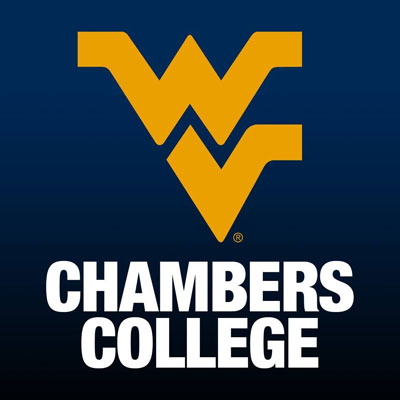MORGANTOWN, W.Va. — When the U.S. Government Accountability Office wanted to talk about topics related to why people commit fraud and fraud in government, it turned to the business school that is a national model for forensic accounting and fraud examination — the John Chambers College of Business and Economics at West Virginia University.
The GAO, known as the investigative and auditing arm of Congress, asked that Drs. Richard
Rileyand Scott Fleming present to the organization in Washington, D.C.,
on April 10. The presentation by the two Chambers College faculty will include
issues such as the fraud triangle: what drives people to commit fraud, why do they
seize the opportunity to commit fraud and how do they rationalize the commission
of the act. The Chambers College has completed a significant amount of research
on the subject, resulting in industry and academic publications such as those recently
appearing in the highly held
CPA Journal and
Fraud Magazine.
WVU’s forensic accounting program has been regarded as a national model, with a history of leadership in anti-fraud and forensic instruction.
“In our position as thought leaders, we are on the cutting edge of both practice and academia,” said Riley, the Louis F. Tanner Distinguished Professor of Public Accounting and Master of Forensic and Fraud Examination program coordinator. “We’re going to review hot topics and trends. That should allow GAO to apply relevant research that affects their day-to-day work.”
Amber Lopez Roberts, senior analyst for GAO’s Forensic Audits and Investigative Service, said the organization is an independent, nonpartisan agency that works for Congress, and is often referred to as the “congressional watchdog.” As such, GAO opted to connect with Riley and Fleming to discuss hot topics in fraud in its fight against complex, white collar crime.
“As part of an initiative to provide continuing professional education for staff, the FAIS team seeks subject matter experts to participate as speakers on various topics and trends related to addressing fraud, waste and abuse,” Roberts said. “This year, the FAIS team was interested in ‘getting back to the basics’ on forensic audits and fraud investigative concepts. Given their recent work and publications on the evolution of the fraud triangle and fraud modeling, the GAO team reached out to the Chambers College and is looking forward to having both Dr. Fleming and Dr. Riley as speakers.”
Roberts further explained that GAO examines how taxpayer dollars are spent and provides Congress and federal agencies with objective, reliable information to help the government save money and work more efficiently. The Forensic Audits and Investigative Service (FAIS) team provides Congress with high-quality forensic audits and investigations of fraud, waste and abuse; other special investigations; and security and vulnerability assessments.
While news headlines have revealed private industry violations of fraud, Fleming stressed that fraud does not only occur in the private sector.
“The concept of the cost of fraud is not limited solely to the corporate world,” said Fleming, associate professor ofaccounting and senior director of the Center for Executive Education. “Unfortunately, we see this in the government and not-for-profit worlds, too. The tools methods and means for preventing and detecting fraud are consistent, regardless of the type of organization.”
Fleming and Riley said examples of fraud are regularly discovered by GAO, demonstrated by a GAO report earlier this year stating that national food stamp fraud totals at least $1 billion annually, and could be as high as $4.7 billion.
“We hope to introduce and discuss some of the latest facts and methods as a way to share between the academic side and an important watchdog unit such as GAO,” said Fleming. “That certainly is important in this never-ending fight against fraud.”
For further information on the WVU John Chambers College of Business and Economics, follow the business school on Twitter at @wvuccobe or visit business.wvu.edu.
-WVU-
Contact: Patrick Gregg, WVU John Chambers College of Business and Economics, patrick.gregg@mail.wvu.edu or 304.293.5131
pg/04/04/19
Follow @WVUToday on Twitter
